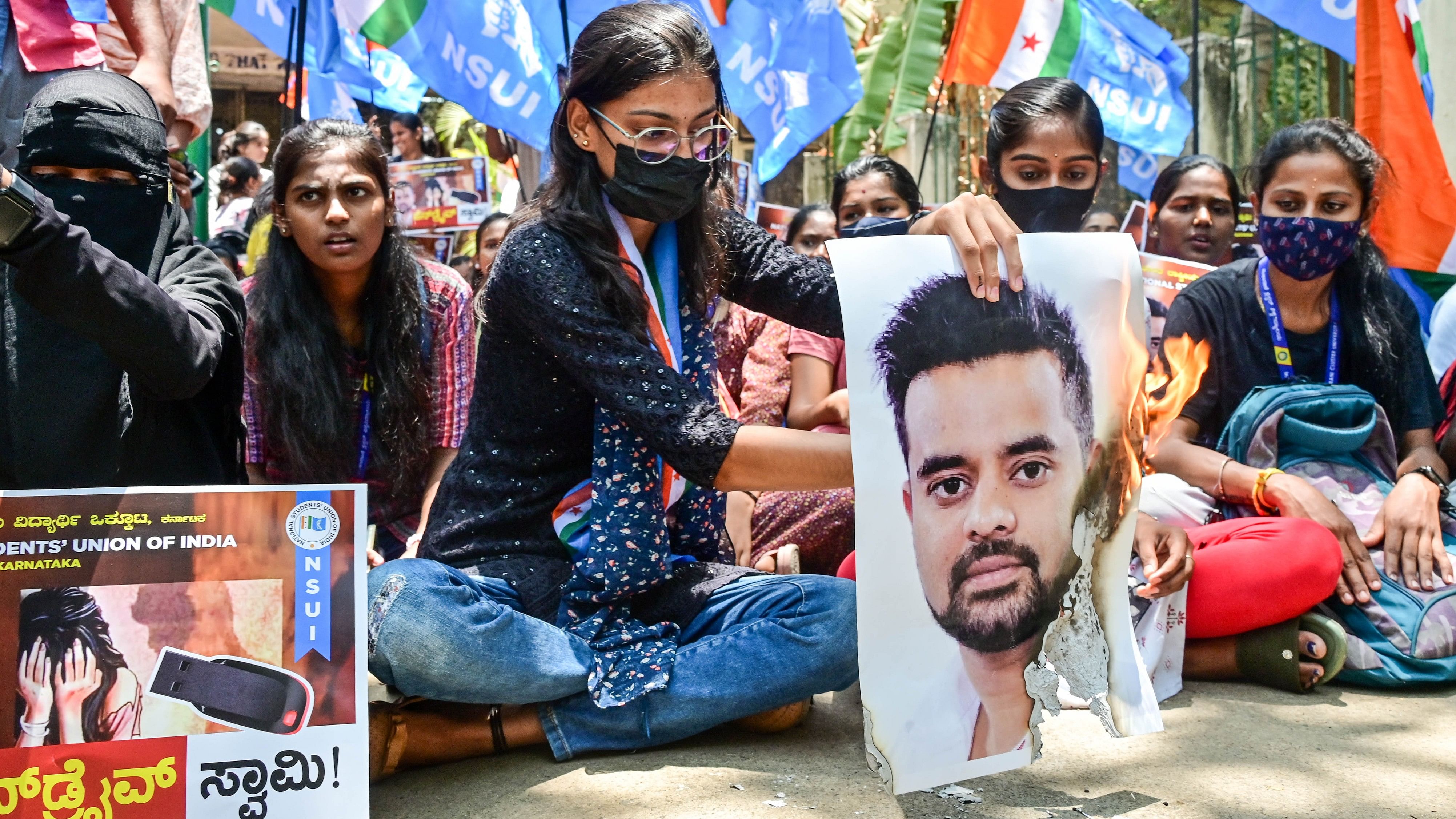
The massive scale of the sexual abuse cases in Hassan has laid bare the vulnerable situation of women in a patriarchal society.
Credit: DH Photo/Prashanth HG
Hassan: The Hassan sexual abuse case has left homes broken and jeopardised the future of numerous women and children.
“My own family treats me with contempt and derision,” says one of the survivors.
The damage is not limited to the personal front, her colleagues have started questioning her professional competence as well.
She trembles with anger and helplessness as she shows the message of a fellow female professional demanding her resignation as an office bearer in a professional association.
Many of her extended family members have stopped speaking to her. They convey their words of caution and mockery through her mother and sister. “Not just me, they too are not getting invitations for events,” she says.
She puts up a brave face as she explains how she overcame suicidal thoughts keeping the future of her children in mind, acknowledging the well-wishers who stood by her during this trial by fire.
Several women like her are living in a state of constant trauma after April 22, when video clips, photos and screenshots of video calls with sexual abuse and activity, allegedly perpetrated by Hassan MP Prajwal Revanna, went viral, shaking the very foundations of humanity and society.
The massive scale of the sexual abuse cases in Hassan has laid bare the vulnerable situation of women in a patriarchal society. The impact is there for us to see: Many survivors had suicidal thoughts. At least three students have discontinued their studies. Family ties are broken. Engagements have been called off.
In Hassan, social morale has been deeply affected. A significant portion of the audience regard the videos voyeuristic.
It is key to note that there was no attempt to mask the identities of women, young and old, in the photos or videos. Most are known faces in social and political circles of Hassan.
The women are party workers, domestic helps, officials and professionals. Three survivors have lodged police complaints. One of them has recounted in the FIR how he coerced her when she approached him for social work, recorded the act and then blackmailed her using the video. The FIR mentions that she had approached him for hostel seats for female students.
The crime has been committed at three levels: the perpetration of sexual violence, recording the act and making the content available to the public.
The state government has formed a special investigation team (SIT) to probe the crime. The culprits behind making the videos public are yet to be identified.
While political parties are in a bitter battle over the issue and the alleged perpetrator, Prajwal Revanna, has gone abroad, many survivors of sexual abuse are unable to even step out of the confines of their houses.
Today, they face stigma from people who think that the women’s act was consensual. The public is also not lending them a hand to come to the mainstream, says social worker Mamatha Shivu. “How does one know that it is consensual in a video clip spanning a few seconds?” she asks. In some videos, even when a woman asks him not to record, he continues to do so, saying he will delete it later, Mamatha says.
More than their partners and family, survivors just can’t face their children, to whom they are unable to explain the events or circumstances, but who are forced to bear the consequences. Writer and activist Rupa Hassan explains that concern for the future of their children has stopped many survivors from coming forward to file complaints. They say that they can face the entire world but cannot face their children seeing them as victims of sexual violence. “This is a complicated situation. While we wish for their mental peace and physical safety, we also hope that they get the confidence to come out and tell the truth,” Rupa says. “Only if the perpetrator is arrested and punished, will the survivors gain confidence.”
A member of the district Mahila Jagruta Dala, Mamatha knows some of these survivors personally. “Their initial reaction was denial saying that their photos have been morphed. Now, they do not have the confidence and trust in the system to come out and file a complaint,” she says.
“Some videos were released even after the elections. It is very important that the SIT prevents their release in future,” says Rupa Hassan.
The youth are devastated after witnessing women, particularly those in leadership positions, in vulnerable situations. “To me, these videos manifest the extent of abuse men in power can perpetrate. This is a huge setback to female participation in politics in the district,” says a college student in Hassan.